Things get weird on Capitol Hill. Just look at how Republican senators acted last week on the Comprehensive Nuclear Test Ban Treaty (CTBT). They congratulated themselves on stopping the Obama administration from doing something that it did not intend to do in the first place. In the process, senators threatened to defund the CTBT’s international monitoring system. That’s the system that has detected and promptly reported all North Korean nuclear tests.
Republican senators don’t seem to be fans of arms control. But the CTBT would lock in an area of U.S. advantage. That’s the kind of arms control they ought to like.
U.N. Security Council acts
Signed in 1996, the CTBT bans all nuclear tests and other nuclear explosions. Today, 183 countries have signed the treaty, and 166 have ratified it. The United States has signed but not ratified. That’s a problem, because ratification by the United States and several other countries is required in order for the treaty to enter into force.
The Obama administration has supported the treaty but does not believe it has the two-thirds vote in the Senate for ratification. In order to bolster the international norm against nuclear testing, U.S. officials sought a U.N. Security Council resolution on the subject.
On Friday, Senator Tom Cotton (R-Arkansas) claimed credit for preventing a resolution that would “circumvent the constitutional treaty process and greatly harm our ability to deter nuclear armed-adversaries.” He had expressed alarm over the summer that the administration would go around the Senate and agree to a binding resolution to end nuclear testing.
Except that the Obama administration made clear from the beginning that it would not do that. A National Security Council spokesman in early August said the White House was “looking at possible action in the U.N. Security Council that would call on states not to test and support the CTBT’s objectives.” The spokesman continued: “We will continue to explore ways to achieve this goal, being careful to protect the Senate’s constitutional role”—i.e., no binding Security Council resolution that would displace the Senate’s prerogative to consent to ratification of treaties.
What the U.N. Security Council resolution does do is encourage the treaty’s early entry into force, express support for the moratoria that most nuclear weapons states observe on testing, and call for support for the CTBT’s international monitoring system. That’s pretty vanilla.
It seems odd to pat oneself on the back for stopping the administration from doing something it did not intend to do, but politics are politics. You take your victories where you can.
Is that really the right hostage?
More disturbing, however, was the threat that Senator Cotton and 33 of his colleagues used in their bid to dissuade the administration from doing something that it wasn’t going to do: Senate Republicans would block the U.S. contribution to the CTBT’s international monitoring system.
While the CTBT has not entered into force, a monitoring system has been set up around the world with sensors to detect nuclear explosions, whether they are in the atmosphere, underwater, or underground. Twenty-five of the system’s monitoring stations detected the September 9 North Korean nuclear test. That system was the hostage that 34 senators threatened to shoot.
To be sure, the United States has its own national technical means to detect nuclear explosions. But part of that system is classified. U.S. intelligence, moreover, does not enjoy the highest credibility around the world. The CTBT’s international monitoring system is a good complement, and the U.S. government’s financial contribution is peanuts.
Why not ratify CTBT?
More broadly, however, why don’t Republican senators favor CTBT ratification?
The Senate did not approve the treaty in 1999, mainly due to two reasons: It was unclear whether the United States could maintain a reliable nuclear arsenal without testing, and there were doubts about the ability to detect cheating.
A lot has happened in 17 years, and those questions today have strong answers. The stockpile stewardship program, launched in the mid-1990s, aims to prove the safety and reliability of U.S. nuclear weapons without nuclear explosive testing. With the program now fully running, the directors of the national nuclear laboratories and commander of Strategic Command annually certify their confidence in the weapons’ reliability. They see no need to resume nuclear testing.
As for possible cheating, U.S. national technical means have improved over the years, and the CTBT’s international monitoring system now has deployed almost 300 stations. The system is believed capable of detecting nuclear tests with yields of one kiloton and lower (the bomb that destroyed Hiroshima was 14 kilotons). The National Academy of Sciences believes that tests can be detected with yields as low as 0.1-0.2 kilotons.
As former Secretary of State George Shultz said: “You can say a senator might have been right to vote against [the CTBT] when it was first put forward [in 1999] and right to vote for it now. Why? Because things have changed.”
It is, in any event, hard to see the United States resuming testing. Nevada fought tooth and nail against storage of nuclear waste at the Nevada National Security Site, formerly known as the Nevada Test Site. The population of Las Vegas, about 60 miles away, is almost triple what it was when the last underground U.S. nuclear test took place in 1992. Does anyone think the state would welcome nuclear tests again? No one else seems eager to host them.
Moreover, in addition to having the world’s most advanced stockpile stewardship program, the United States conducted as many nuclear tests as the rest of the world combined and gathered more detailed information about nuclear weapons and their effects. Blocking the CTBT protects a right to test that the United States would find politically difficult, if not impossible, to exercise while allowing others an opportunity to catch up. CTBT ratification should be a no-brainer.
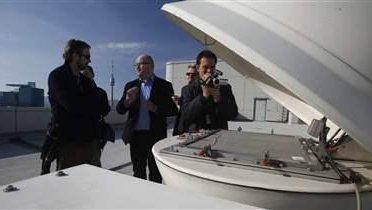
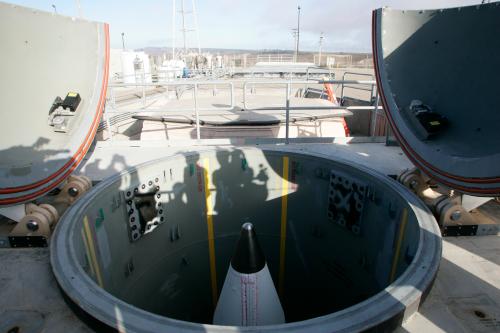
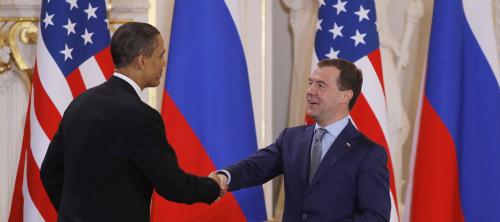

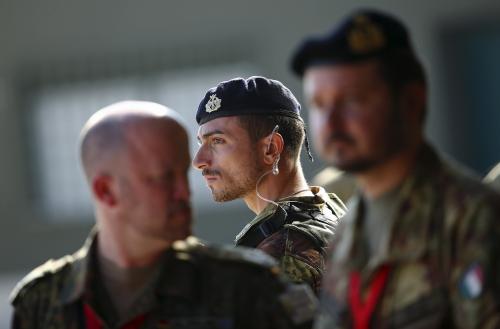
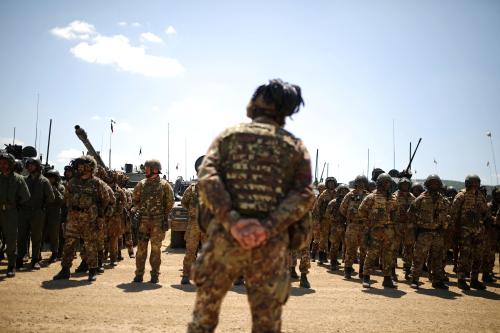
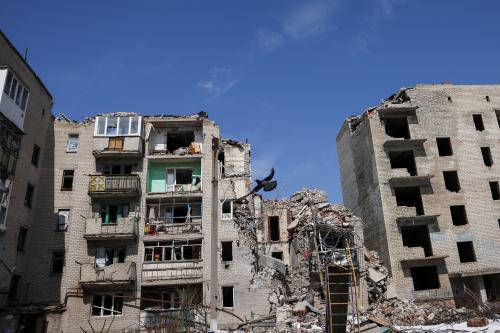
Commentary
What’s the deal with Senate Republicans and the test ban treaty?
September 26, 2016